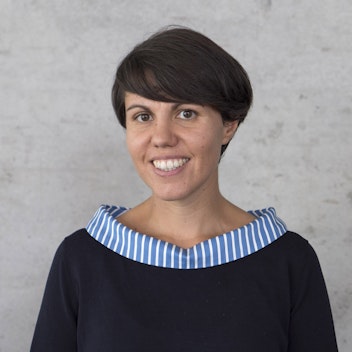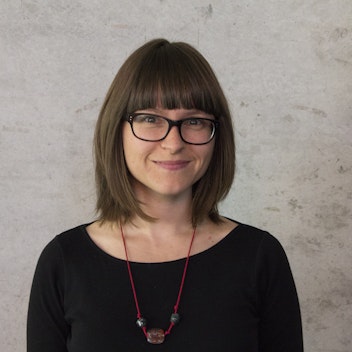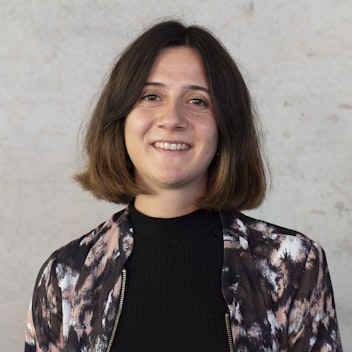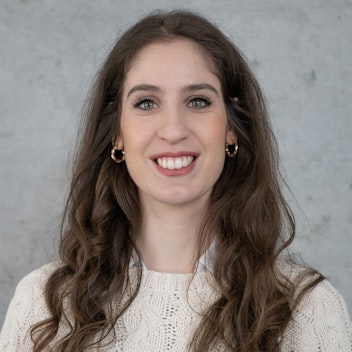Institute for Minority Rights - Politics and Actors in Societal Conflict
Politics and Actors in Societal Conflict
This group explores minority issues and societal conflicts through the lens of actors and the politics of agency. Its actor-centred research focuses on mobile people, diverse societies, inequalities and their interactions with minority issues.
- English
The aim of the Research Group Politics and Actors in Societal Conflicts (PACS) is to unpack and explain migration governance and the related political and societal conflicts through an actor-centred approach. We define migration governance in broad terms, including the management of flows and borders as well as of diversity and integration processes. Hence, it is not a static concept, but rather the product of interactions of diverse actors and intertwined with dynamic processes involving multiple geographical scales.
PACS's focus on actors and politics is timely and relevant: in recent decades, a wide range of new governance actors with the legitimacy and capacity to challenge and change migration governance and integration processes has emerged. We are witnessing radical shifts in the patterns and the dynamics of human mobility since it has become circular, multi-directional and temporally diverse, and economic, political, social and environmental developments at the global level constantly modify minority-majority relations and established hierarchies. These dynamics lead to various forms and shifts in power relations, and to the emergence of new and diverse actors in the governance of migration at different levels of government (local, national, regional, global), including public and private entities.
As a consequence of these changes, a focus on actors and the multiple dimensions of agency as proposed by PACS is central to investigate migration governance. Our approach allows us to go beyond traditional legal and institutional approaches and to question established forms of authority. Our understanding of actors includes governmental and non-governmental entities, persons, institutions and bodies at various levels of governance, which may exert formal and informal forms of agency, whether top-down, bottom-up or horizontally, with the capacity and legitimacy to influence other entities, public opinion and, policymaking. We study different patterns of participation and representation, including traditional and non-traditional forms. We explore how agency is structured, how actors relate to and influence each other, and how these aspects ultimately impact the migration governance process, its outputs and its effects on individuals, groups and institutions. PACS’ main lines of research are: 1) the multilevel governance of migration, with a particular focus on migration policymaking at the regional and the supranational level. 2) the interplay between formal and informal actors - including individuals with migration background -in the governance of migration, and specifically in relation to the political participation of marginalized groups.
The PACS group closely collaborates with Eurac’s interinstitutional research group “Migration & Diversity” composed by researchers from the Institute for Minority Rights, the Institute for Regional Development, the Institute for Applied Linguistics, the Institute for Public Management and the Institute for Comparative Federalism. Within this research group, we exchange knowledge and expertise, and we actively reach out to a wide audience by publishing our research outputs in the group’s blog (Mobile people & diverse societies: Places in the making and a webinar series (Diversity Matters. An interdisciplinary webinar series. Within this interinstitutional framework, we also participate in activities with a direct societal impact. An example of this includes our collaboration with colleagues from the Institute for Regional Development in the field of housing for persons with a migration background and in relation to diversity management policies in the labour market at the local level in South Tyrol.
For the next three years, the group will focus its research on the substate level, including regions and cities, and apply the actor-centred approach to the study of societal conflicts, with a particular focus on:
- migration governance,
- identity politics,
- the recent Covid-19 pandemic.
In relation to migration governance, PACS studies the role of regions, cantons, provinces and Bundesländer in formulating immigrant integration policies, the relations between the various levels of government involved in migration governance, and the networks of formal and informal actors involved, ranging from governments to NGOs, religious organizations and the civil society. Furthermore, it documents the behavior of regionalist and ethnic parties in relation to immigration and analyzes their positions, discourses, and claims.
When it comes to identity politics, PACS currently concentrates its research activities on the second generation of migrants and Roma women. It analyzes the different forms of political mobilization by member of these groups, with a particular focus on the claims raised and the specific challenges of contentious politics.
Furthermore, PACS considers the various actors working to represent these group – political parties, associations, social movements and interest groups – and the factors affecting their success.
The Covid-19 pandemic has further crystallized existing conflicts and vulnerabilities. PACS explores the intersection between various forms of inequalities and barriers to participation of vulnerable group, concentrating specifically on female strategies to negotiate the effects of the pandemic.
PACS studies the behaviour of interest groups, including new emerging networks, virtual networks and religious institutions, the emerging claims and the underlying frames in relation to unequal opportunities.





